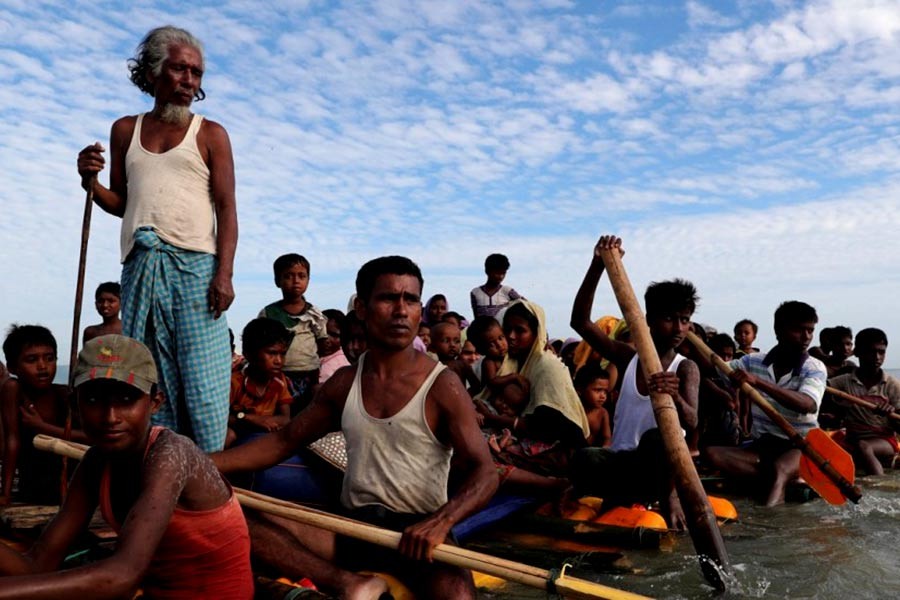Amnesty International has welcomed a ruling by the International Criminal Court (ICC) establishing its jurisdiction over alleged crimes against Rohingya people by Myanmar military.
On Thursday, the ICC ruled it had jurisdiction to probe the forced exodus as the Rohingyas fled to and were currently being hosted by Bangladesh, which was a state party to the Rome Statute that established the ICC.
“This decision is a significant step in the right direction which opens up a clear avenue of justice for the Rohingya,” Amnesty’s South Asia Director Biraj Patnaik said in a statement on Friday, reports bdnews24.com.
“The court has sent a clear signal to the Myanmar military that they will be held accountable,” the ICC said.
The AI also said forced deportation was just one of a raft of crimes committed against the Rohingyas and it documented extensively how the military's crackdown also included murder, rape, torture, forced starvation, the targeted burning of Rohingya villages and the use of landmines.
It also urged the UN Security Council to refer Myanmar's case to the ICC so that it can investigate all crimes against humanity, including those against other ethnic minorities in Kachin and Shan states in north and northeast Myanmar.
“While we welcome the ICC's decision, the international community must see it as a spur to further action," said Patnaik.
In April, the Office of the Prosecutor of the ICC had requested a ruling to probe if the ICC could investigate the alleged deportation of hundreds of thousands of Rohingyas, fleeing state persecution as Myanmar was not a state party to the Statute, the international treaty that established the ICC.
As Myanmar is not a state party to the Rome Statute of the ICC, serious violations taking place within its borders do not typically fall under the Court’s territorial jurisdiction, barring acceptance of the Court’s jurisdiction by the Myanmar authorities or a referral by the UN Security Council.
However, Bangladesh is a State Party to the ICC, and the court found that it had jurisdiction over the crime against humanity of deportation as an element of that crime was completed on the territory of Bangladesh.
The ICC also found that as the Rohingya had been unlawfully compelled to remain outside their own country and to live in appalling conditions in Bangladesh, the ICC may have jurisdiction over the crime against humanity of persecution and 'other inhumane acts' which it said constituted a severe deprivation of the Rohingya’s fundamental human rights.
Myanmar does not recognise the Rohingyas as citizens and subjects them to various kinds of discrimination, including restrictions on their freedom of movement.
More than 700,000 Rohingyas fled to neighbouring Bangladesh following a crackdown by the Myanmar Army in August 2017.


